- News
- Reviews
- Bikes
- Accessories
- Accessories - misc
- Computer mounts
- Bags
- Bar ends
- Bike bags & cases
- Bottle cages
- Bottles
- Cameras
- Car racks
- Child seats
- Computers
- Glasses
- GPS units
- Helmets
- Lights - front
- Lights - rear
- Lights - sets
- Locks
- Mirrors
- Mudguards
- Racks
- Pumps & CO2 inflators
- Puncture kits
- Reflectives
- Smart watches
- Stands and racks
- Trailers
- Clothing
- Components
- Bar tape & grips
- Bottom brackets
- Brake & gear cables
- Brake & STI levers
- Brake pads & spares
- Brakes
- Cassettes & freewheels
- Chains
- Chainsets & chainrings
- Derailleurs - front
- Derailleurs - rear
- Forks
- Gear levers & shifters
- Groupsets
- Handlebars & extensions
- Headsets
- Hubs
- Inner tubes
- Pedals
- Quick releases & skewers
- Saddles
- Seatposts
- Stems
- Wheels
- Tyres
- Health, fitness and nutrition
- Tools and workshop
- Miscellaneous
- Cross country mountain bikes
- Tubeless valves
- Buyers Guides
- Features
- Forum
- Recommends
- Podcast
feature
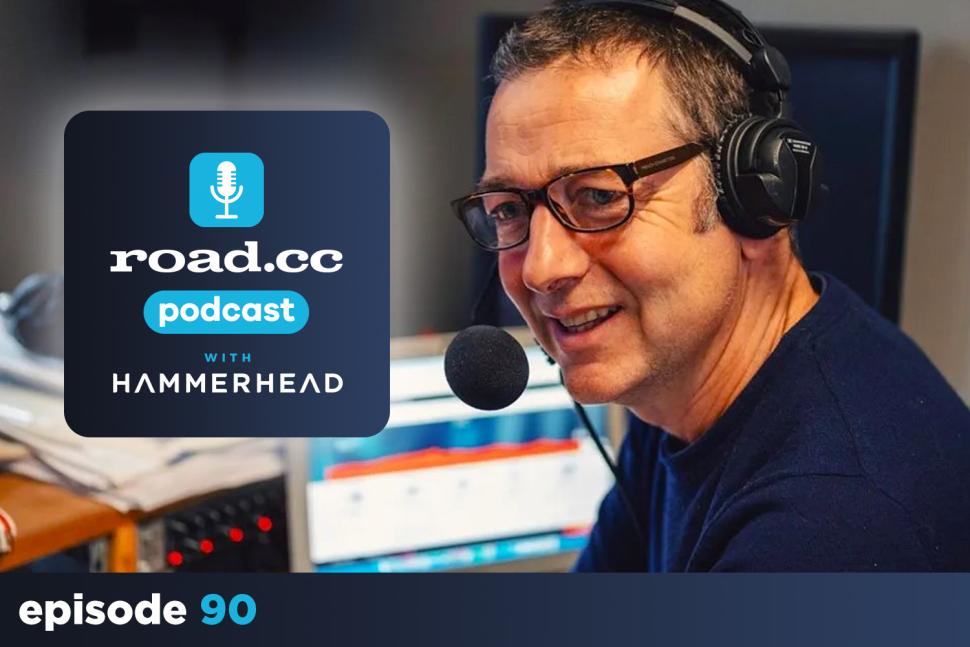 road.cc Podcast episode 90
road.cc Podcast episode 90“The Tour is the only race that matters. And that’s gone now”: Ned Boulting on the end of free-to-air Tour de France coverage in the UK and his “deep sense of loss”
From 2026, the familiar sights of the Tour de France – the epic mountain ranges, fields of sunflowers, Tadej Pogačar riding off into the distance – will remain the same. But for many cycling fans in the UK, the sounds will be very different.
Next year’s Tour, the 25th edition of the race to be shown live on ITV, will be the final one to be broadcast on free-to-air television in the UK (for the foreseeable future at least), after it was announced last week that Warner Bros. Discovery and Eurosport have agreed a new exclusive TV rights deal for cycling’s biggest race from 2026 onwards.
Listen to the road.cc Podcast on Apple Podcasts
Listen to the road.cc Podcast on Spotify
Listen to the road.cc Podcast on Amazon Music
That deal means that the Tour will disappear from ‘regular’ programming in the UK for the first time since 1984, when Channel 4 (and its iconic Pete Shelley-penned theme) introduced an entire generation of fans to the vibrant technicolour and drama of the race, as well as the culture, history, and geography that accompanies the peloton around France.
(A.S.O. Pauline Ballet)
Gone too, will be the by now iconic 7pm highlights package on ITV4, fronted by Gary Imlach and watched with wonder by Tom Pidcock and countless others as they stretched the limits of their summer bedtimes, with its carefully told narrative of the race and colourful asides, reminding viewers that the Tour de France is much more than a simple bike race.
For Ned Boulting, who’s been along for the ride with ITV throughout almost the entirety of its quarter-of-a-century association with the Tour, the 2025 race will mark the end of a long, meaningful journey.
“Not enough of us cared”
Speaking to the road.cc Podcast this week, ITV’s lead cycling commentator explained that, when the news broke of Eurosport’s exclusive new deal, he found out just like everyone else, on the morning of the fourth show of his brand-new tour, ‘The Marginal Mystery Tour: 1923 and All That’.
“I was very disappointed, but I wasn’t particularly surprised,” Boulting, who joined ITV’s ranks at the Tour in 2003, as a cycling newbie fresh from the football world.
Over a decade later, in 2016, he became the channel’s lead commentator, as he and the freshly retired David Millar replaced the legendary double act of Phil Liggett and the late Paul Sherwen, becoming – in the ears of many fans – the voice of cycling in the UK.
And while he wasn’t aware that ITV’s relationship with the Tour, and his own 22-year association with the race, was about to come to an end on the morning of a show in Horsham, Boulting tells the podcast he was aware the “writing was on the wall”.
> No Tour de France on ITV from 2026 as Eurosport becomes exclusive UK broadcaster
“For the Tour de France, free to air, for very self-evident reasons, has a size of audience that completely eclipses subscription television,” he says. “The comparison is stark – it’s ten to one or something. At the peak of 2012 and the years after that, well over a million people were tuning in.
“And when cycling is watched on a subscription channel, you're talking about tens of thousands. It doesn’t bear comparison, to be honest. Now, that audience peak has dwindled over the years, and kind of returned to a level that is still higher than when I first started in 2003.
“But the problem is the inflation in the cost of television rights, and the Tour de France is no exception to that. So, it’s become less and less affordable for a free-to-air broadcaster like ITV who relies simply on eyeballs watching. There needs to be hundreds of thousands of people watching for it for it to pay for itself. And year on year, that's got harder and harder.”
He continues: “It isn’t well enough understood how modest a sport in the UK cycling is. And I think one of the distorting lenses through which we see it is social media.
“There’s quite a big cycling presence on Twitter, and because there’s a lot of chat, it feels like a big deal, right? It feels like everybody’s watching this. Everybody’s watching Omloop Het Nieuwsblad, aren’t they? And actually, that’s not true, is it?
“It’s just that there’s a small number of people who are watching it and they’re really engaged in it and there’s a lot of chatter amongst them. But step outside of that bubble and nobody’s watching it.
“It’s nobody’s fault. The ASO have a right to monetise their event as they feel fit, and you cannot blame Warner Brothers for wanting exclusivity. That’s their market. It seems quite strange to me that for a long time they were willing or contractually obliged to share the coverage with a much bigger broadcaster. Why would they allow that to persist?
“And from ITV’s perspective, if they’re losing money, they’ve got to get out. So none of these three parties, in my opinion, are to blame. But the primary reason why it’s gone is because not enough of us cared.”
(ASO/Billy Ceusters)
Nevertheless, while general apathy outside the cycling bubble may have contributed to the demise of the Tour on ITV, Boulting admits that the loss of free-to-air coverage – despite organiser ASO’s clear ambition to Netflixify the race – will almost certainly result in the loss of an integral component of the Tour’s future viewership.
“Since the news was announced, obviously my timeline is filled with people surprised and shocked and disappointed by the news,” he says. “And one of the things that people often have expressed is that ‘I stumbled across, I found cycling, I didn’t know anything about it, it came to me’.
“So that visibility – because let’s face it, we’re not talking about cycling, we’re talking about the Tour de France, this standalone race.
“Forget all the other races, they may as well not exist. There’s only one that matters. Obviously, I love all the races in the calendar, but I’m deeply invested in it.
“For the general public, there's only one that matters. And that's gone now. That’s going to go into a place where, in the UK media landscape, you normally find biathlon and hockey.”
“That’s why they’re there”
(A.S.O., Pauline Ballet)
Reflecting on his own experience at the Tour, a race which has defined his career and public life for almost a quarter of a century, Boulting says he will feel a “deep sense of loss” when he shuts off the microphone in Paris next year.
“I think it’s the the sheer span of my association with the race that takes my breath away, and how quickly things that seem very contemporary and very here and now, within the space of a few years turn into almost nostalgia,” he notes.
“When I think back to the various different iterations and styles and presences of the characters in the Tour over the 23, 24, 25 years I’ve been involved – that’s what gives me an enormous sense of affection for the race, and a deep sense of loss that I know that journey has come to an end.
“Because it feels like another world when I think back to the characters who abounded when I began in the race and where we've ended up now, with one of the greatest generation of riders in the entire history of the sport doing their thing at the very highest level.
(ASO/Billy Ceusters)
“But in between that, we’ve had the Armstrong years, the total chaos of the absolute carnage of the EPO years, the advent of Team Sky and their terribly boring domination of the race, Sagan and Alaphilippe and then – without you noticing it, everything changes in increments.
“And before you know it, two or three years have passed and the whole world is different. And I think it’s that sense of the passage of time unfolding through the lens of this particular race that I will miss greatly.”
That feeling – one that often descends into cliché – that the Tour means more than just a huge annual sporting event is, as fate would have it, poignantly felt in Boulting’s ‘Marginal Mystery Tour’, which he is currently taking around the UK.
> Mini Review: Ned Boulting’s Marginal Mystery Tour: 1923 and all that
The show, which Boulting says is unlike any of his previous tours, is a creative and theatrical adaptation of his best-selling book, ‘1923: the mystery of Lot 212 and a Tour de France obsession’, which chronicled his mid-Covid lockdown acquisition of a two-and-a-half minute long Pathé news reel, which turned out to be a short film of stage four of the 1923 Tour de France.
Like the book, the show emphasises that the 1923 Tour is irrevocably linked to, and a product of, the context in which it took place, in a Europe still bearing the scars of war, teetering towards another disaster, while embracing new cultural, artistic, musical, and philosophical ideas.
For instance, all of the music in the show, Boulting says, was either first composed or performed in 1923, adding to the sense that he’s created a “piece of theatre”.
“It’s a very 21st century attitude to think that sport sits outside of a context,” he says. “Well, in 1923 that wasn’t the case. Every single rider at the 1923 Tour, in one way or another, would have been either injured, bereaved, or displaced by the Great War.
“There was also this massive overlap of interest in the cultural work – Hemingway was obsessed with cycling and he wrote about it. And that is a big cultural difference from where we’ve ended up a hundred and whatever years later.”
And it’s that desire to place cycling within its context that Boulting believes will be most missed by the demise of ITV’s Tour de France coverage.
“It’s a kind of quite poignant coincidence that I am addressing these issues,” he says of his tour.
“And the other thing about my show is it kind of celebrates the institution of the ITV Tour de France coverage. My audience are viewers, that’s how they know me, first and foremost. That’s why they’re there. So they are loyal viewers of the ITV show.
“And they are coming to the theatres in the knowledge that it’s all coming to an end.”
Ned Boulting’s ‘Marginal Mystery Tour: 1923 And All That’ continues until 20 November. Tickets can be found at nedboulting.com/live.
The road.cc Podcast is available on Apple Podcasts, Spotify, and Amazon Music, and if you have an Alexa you can just tell it to play the road.cc Podcast. It’s also embedded further up the page, so you can just press play.
After obtaining a PhD, lecturing, and hosting a history podcast at Queen’s University Belfast, Ryan joined road.cc in December 2021 and since then has kept the site’s readers and listeners informed and enthralled (well at least occasionally) on news, the live blog, and the road.cc Podcast. After boarding a wrong bus at the world championships and ruining a good pair of jeans at the cyclocross, he now serves as road.cc’s senior news writer. Before his foray into cycling journalism, he wallowed in the equally pitiless world of academia, where he wrote a book about Victorian politics and droned on about cycling and bikes to classes of bored students (while taking every chance he could get to talk about cycling in print or on the radio). He can be found riding his bike very slowly around the narrow, scenic country lanes of Co. Down.
Latest Comments
- dave atkinson 6 min 25 sec ago
we were SO lucky with the weather on this one. i've done the butt buster a month later in temperatures that never got above freezing
- Eccentricbiker 23 min 35 sec ago
I have a bell, but it's of no use, nor is any other audible warning device, when many pedestrians have earphones on/in and are oblivious to what's...
- brooksby 55 min 21 sec ago
Except, as I said earlier, the Fentons claim that the border officers in France and the UK also missed this kid. And they're professionals,...
- SecretSam 1 hour 1 min ago
The lefty fork. Answering a question no-one asked...
- Hirsute 1 hour 4 min ago
Some armed bloke was shot by the white house in the last few days. I'm surprised zelenskyy didn't lay him out !
- Shades 2 hours 9 min ago
In addition to my steel road bike, I got a titanium gravel bike built last year; really fancied a 'signature bike' and the bike mechanic I use was...
- spasypaddy 2 hours 13 min ago
nice extension can be found if you google for it that allows you to download a GPX which can then be loaded into Strava's mapping tool to then push...
- chrisonabike 3 hours 49 min ago
What are you, some kind of authoritarian* Communist?...
- quiff 4 hours 48 min ago
I'd say just 4 reverting is a good result; they haven't just been steamrollered by public pressure. Of those, I know 3 well and agree that 30 is...
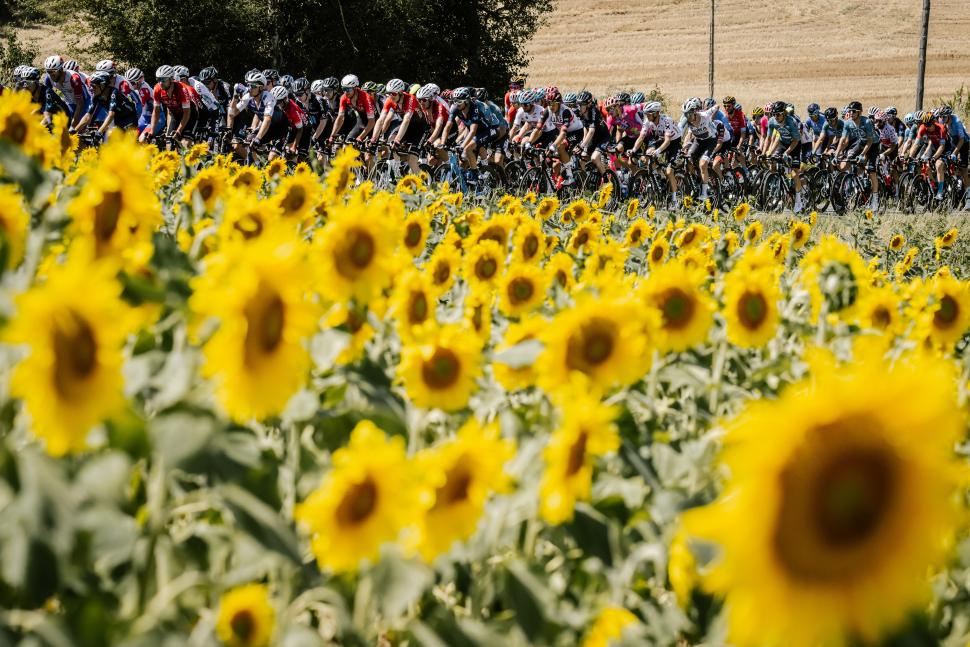
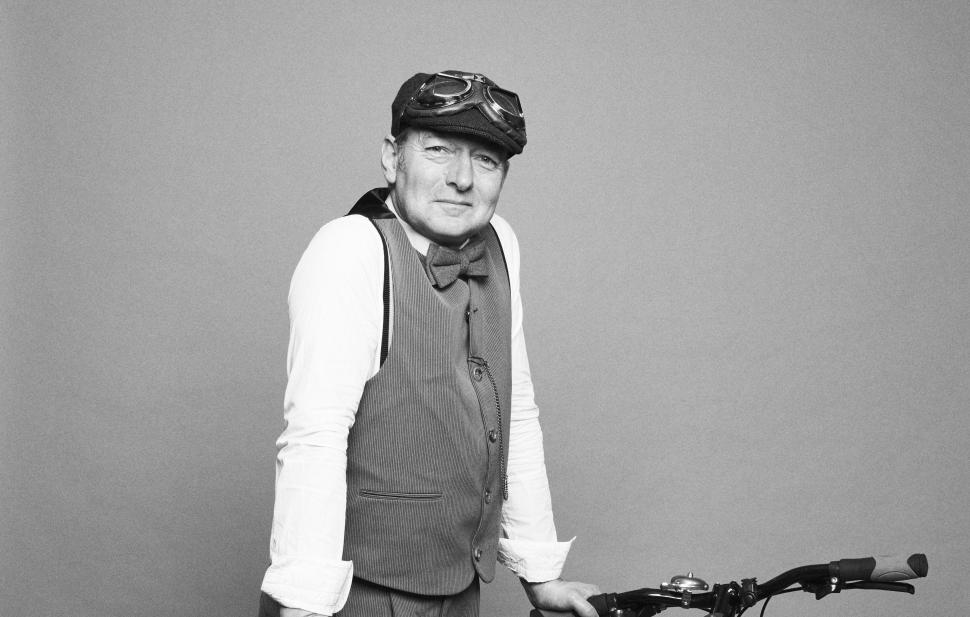
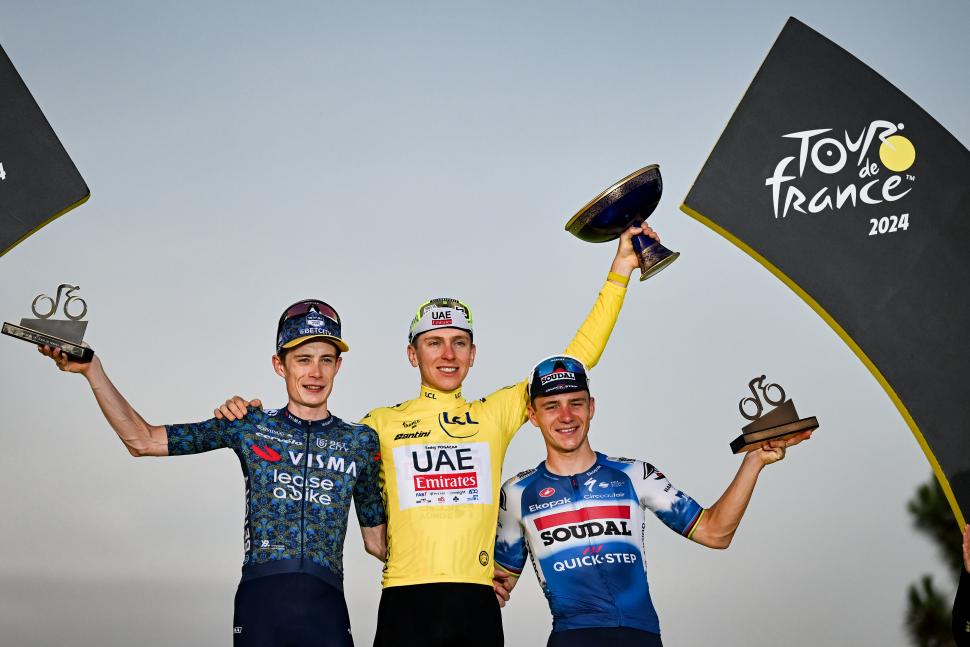
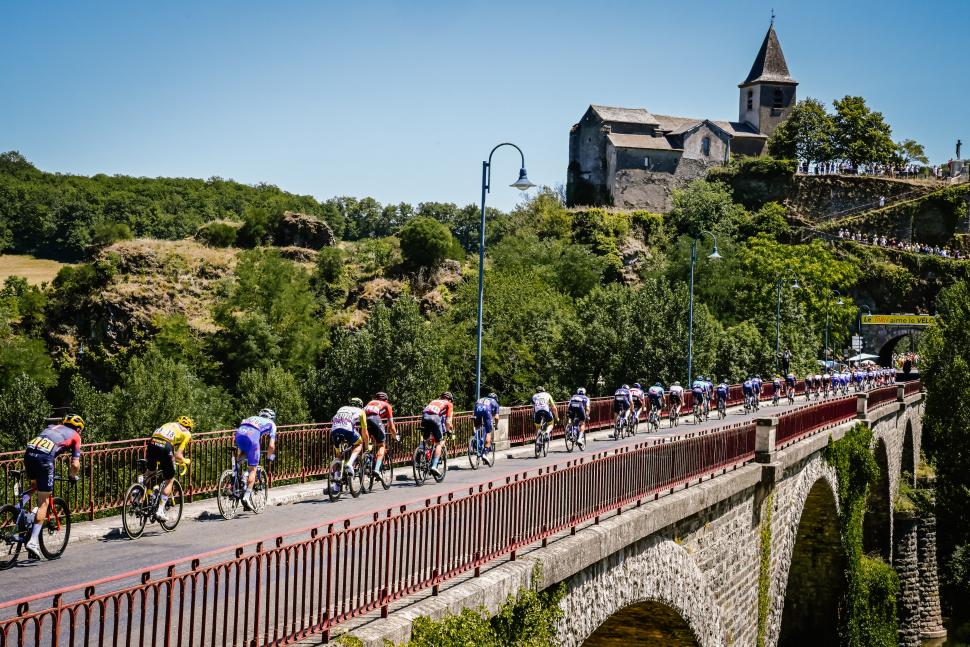
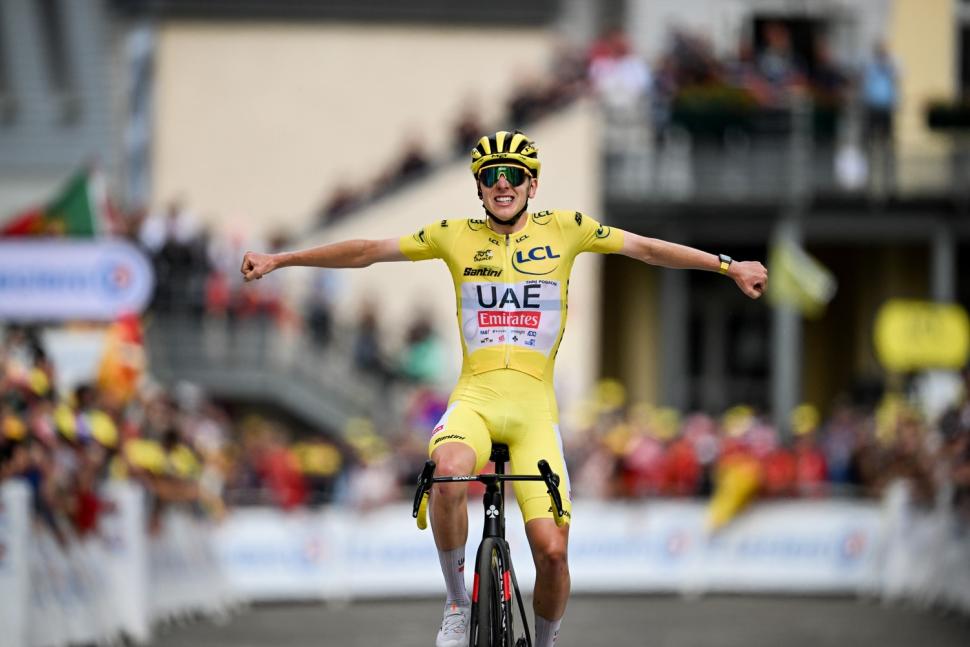
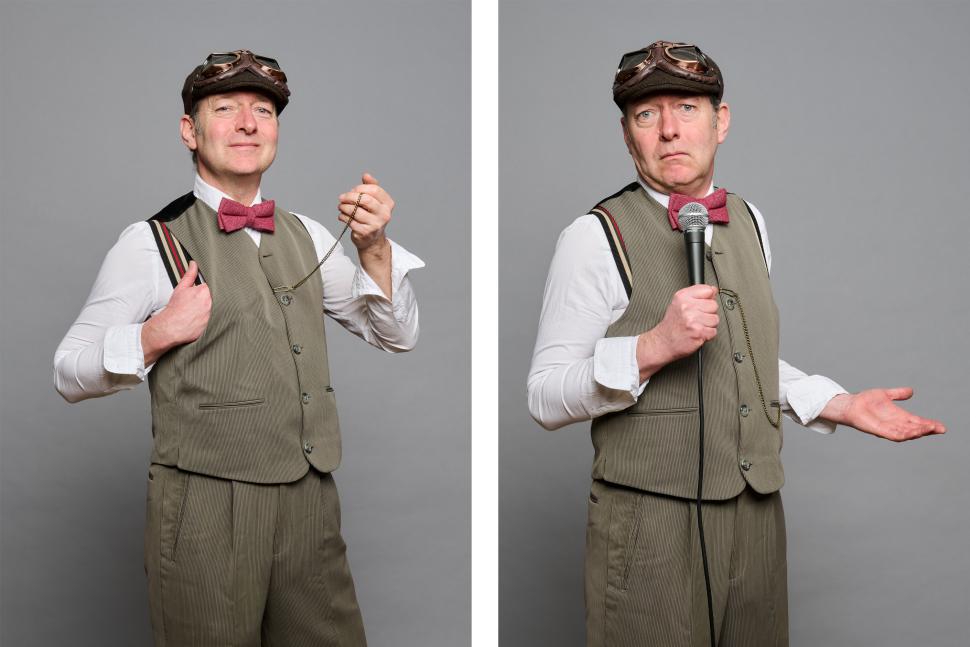
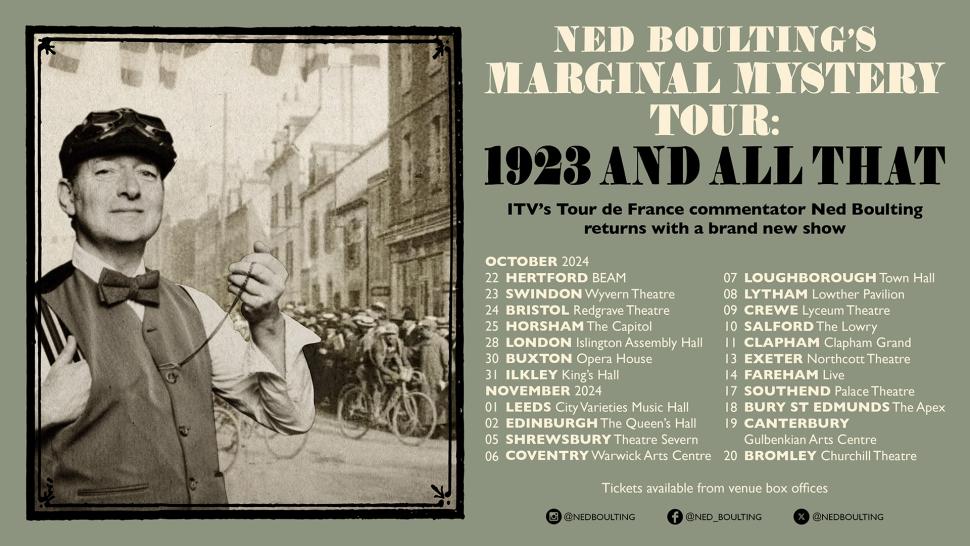
Add new comment
22 comments
It is a shame that ITV will no longer broadcast the Tour de France. However, the ITV presentation has been failing for some time. I used to feel as though I was being informed throughout the race; however, recently, I felt as though I was merely an annoying onlooker to Ned's smug kiss a** show with David Millar. What about the audience, Dan?
The Eurosport presentation team are quite literally streets ahead of the ITV offering and has been for some time now; they have a far better offering, a great mixed presentation team, and if you don't want the studio show, you can choose the alternative broadcast, I can understand the ASO wishing to make sure the sport is shown in its best light and in the best manner, in addition why didn't ITV embrace the Women's tour it is all very well saying the sport will suffer by not being able to show the men's tour, but that is just half the story.
The TDF lost it for me way back when they stripped Lance Armstrong of his record 7 wins; then to make matters worse, they never put in a second best finisher which would have happened in any race of any sort had the first place person been disqualified, why didn't they do that for the TDF? Because the ENTIRE peloton was doping and they knew it! Had they put in the second place finisher Armstrong would have exploded the lid off of the entire peloton, so to hush him up no one won. If you look at the history of the TDF average speed, there is a spike in speed for those 7 years, that is the entire peloton performing better than normal, as soon as Armstrong was busted, the peloton slowed back down.
There are some other things I know about those 7 years of Armstrong wins that would take up too much space here concerning the entire peloton and what they were allowed to do by UCI, and the UCI overlooked it all, till it came to Armstrong.
Doping had been going on for a long time, anytime any type of race or athletic sport is being done, doping or some other form of cheating is always suspect. A NASCAR driver once said, "if you're not cheating, you're not trying", and that explains what all sports players do to get an edge.
Even Eddy Merckx admitted to cheating, so I'm 100% sure he cheated during the TDF. In fact he was busted 4 times in 8 years, and never got totally band, especially from the TDF. Merckx not only introduced Armstrong to Dr Ferrari, the doctor of dope but he also introduced his son Axel to Dr Ferrari. More proof that Merckz cheated in his TDF wins.
Armstrong was a cycling machine. A dominating, overpowering, winning monster. Everyone loves a winner- until they win too much, and if those wins take away from a race that "belongs" to Europeans and not to Americans, then hate comes in bushel baskets.
Fixed that for you...
Armstrong got unceremoniously dumped because of his bullying, psychopathic nature. He literally tried to destroy lives and livelihoods, from Emma Reilly to Greg Lemond to Frankie Andreu to Christophe Bassons to Filippo Simeoni. The man behaved like a total c**t, and then of course there's the cancer community he duped (yes, I know he raised a lot of money for them).
Every so often I have this conversation with someone who idolised Armstrong and can't understand why he was singled out. You probably still can't see it, but most people get it. Over and above protecting himself, he despised decent people and needlessly destroyed them for daring to challenge him. That's the truth of it.
By no means claiming that Armstrong was the only doper in that period but your claim makes no sense: the average speed is taken on the time of the winner, so if the winner's doping the average speed will rise regardless of how many clean riders are behind him.
As you clearly do not know very much about professional cycling, I think it is only fair that we educate you. The entire peloton was not doping, and there are some very clear examples of non-dopers being forced out of the sport by the CHEAT named Armstrong, which is why he was stripped of all those titles. I leave it up to your own time and effort to find the evidence, but I will give you one tip. Armstrong apologised to at least one of them himself.
It looks like Discovery/Eurosport have got the exclusive deal more by default than by actively targetting it. I don't think it would be that big a subscription incentive on it's own otherwise for 95% of people.
Like others, I'll be sad to see the ITV commentary go, I think they do a really good job of setting the right tone, plenty for the full on fan, but enough additional interest for the casual viewer (or semi-reluctant spouse).
Even though I pay for Discovery+ I invariably watched ITV's TdF highlights. They just did it so much better - Imlach, Boulting, and Millar joined by the likes of Daniel Friebe. What a shame - I hope that other broadcasters of cycling are sensible enough to employ some of them. Boulting is too good a commentator not to be covering big races.
I am still in mourning at Ned and Gary not being on Itv. And the pod with David and Pete (plus guests) from the tour is brilliant fun.
I'm a little lost here. As I understand it the rights were bought by an umbrella TV organisation. ITV (& the BBC for that matter) are members of that organisation, which then committed to providing the coverage to their members for a fee. ITV decided not to pay that fee.
Is that a fair summary or am I overlooking something significant?
I grew up watching Imlach, Sherwen and Liggett with that iconic theme tune. While I'm not sad that it's going for myself as I watch the Tour elsewhere now I am sad that youngsters won't be able to casually tune in one summer evening and get hooked like I was in the mid 80s.
But maybe some very short social media highlights could be bought because that's where many young people consume their content these days (at least then there would be something for them to get interested in)?
Apparently a fair summary, I assumed WBD must have outbid ITV but apparently ITV didn't even put in a bid. They have just accquired the rights to all the non-final-stages-tournament fixtures of both male and female national soccerball teams until 2028 so presumably that's where all their sports budget has gone.
If you read Neds interview in Telegraph, it's clear the current viewing figures don't stack up for ITV to pay over the odds for it, and that Eurosport/WBD believe they can attract all those people to pay to watch instead
And we don't know what they were bidding for, highlights you'd think for sure still, maybe they wanted less live coverage, since that's only a recent thing in terms of C4/ITV coverage
And I'm sure I saw somewhere on twitter the EBU were quoted saying ITVs bid was unsatisfactory, not ITV didn't bid.
I'm not sure that's the best line to pull from an interview with someone who gets part of his income from RCS for doing the international feed commentary on the Giro. Unless he's already lost that gig as well, or he's making enough from tours, books, and podcasts.
The only one that matters to most viewers. I watch Omloop (what's not to like!) but my wife only watches the tour, colleagues only watch the tour, my wider family only watch the tour. In my cc, most only watch the tour
It is the only race that brings in any real prize money and even then it's not exactly substantial when compared to many other mainstream sports..
The thing I don't really understand about this deal , is when a network bids for these events it's usually in a hope to drag more viewers to there network in the way of subscriptions. I don't fir one minute think many people are going to take up another subscription based on the TdF.
Too many people are turned off by its long nature and let's be fair , away from the sprints finishes and the last few km of a particular climb it's not exactly setting the pulses racing viewing. Some people are happy to just see the highlights and wouldn't even entertain the idea of watching 3 weeks of it from start to finish.
So apart from taking the tour away from loyal fans on ITV or potential younger fans, what is the aim of this deal?
I love watching the whole race minute by minute. The tactical.battle is frequently fascinating and worth watching every moment. Sprint finishes don't hold nearly as much interest for me and they are so fraught with risk of serious injury that it appears like a blood sport at times (which i do not like either).
Unfortunately you are very much in the minority. Appreciate people like yourself do watch every minute, but not many really do. And not many people are going to pay more money just for this single event.
I too watch from flag to flag but I can only do that because as a freelance writer working from home I can have it on whilst I work, I appreciate most people don't have that privilege. Crucially schools don't break up for the summer until the Tour is nearly over, so if anyone cares about the continued health of youth engagement with the race a decent highlights package is essential.
As teachers, the school holiday thing is a bit of an issue for my wife and I in watching the stages as they unfold but we do watch the highlights every night and, while I enjoy the ITV4 stuff, Eurosport's highlights tend to be a little later in the evening which suits us better anyway.
The thing about Eurosport being the sole broadcaster of the race is that, in the UK all Sky subscribers get it at no extra cost anyway (and I believe some other TV services also offer as part of the package), so I am not sure what the benefit is in terms of driving subscribers.
We also get a free Discovery+ account into the bargain, which was really useful during the Olympics.
As a teacher's husband, I'm allowed to watch up to 50km out (unless it's a big mountain stage when I can only watch up to the start of the first HC climb) then I pause the live coverage, go and meet Herself at school, ride home together then we watch the last hour or so "as live". Works well for us as long as I avoid looking here or on other cycling websites where I might see the result!
Athletes will always be that it's the technology through the years that's pushed time trials and race times. As a former downhill rider (for fun) I'm more at the white knuckle end so I've always viewed the "tour" in the same manner as F1 and the royal Ascot.... More entertaining if you're actually there. True where it's sad they're removing it hardly a surprise given the cash on offer for exclusivity a free to air station cannot compete with that. More money for the UCI to make all competitive cycling boring!
Thank you for the extensive transcription.